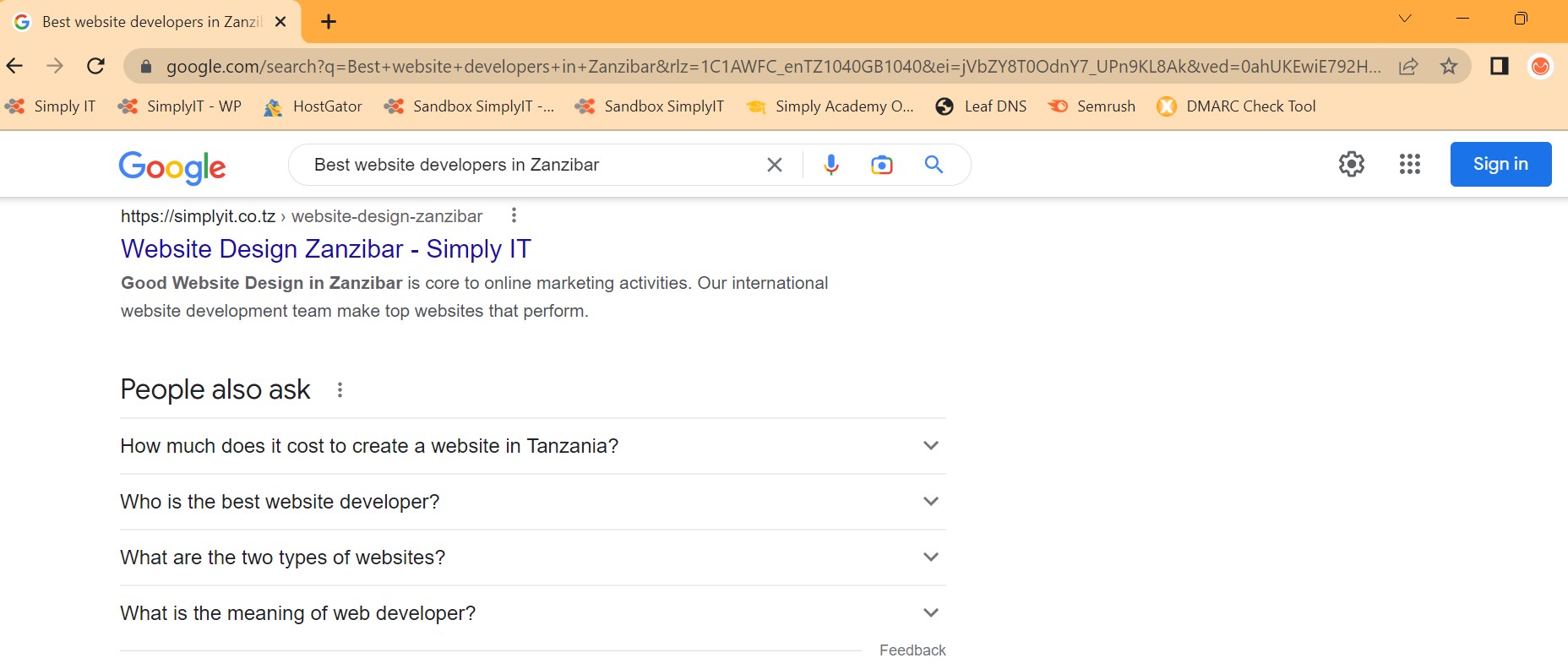
Search Terminology
A key component of effectively exploiting your internet presence for the growth of your organisation is understanding search terminology. This knowledgebase article helps you to learn more about schema markup.
The evolution of internet search technology over the past ten years has had a huge impact on how an online business is represented online. Additionally, semantics, the definition of concepts such as schema markup or structured data in this context, has grown significantly during the course of the internet’s existence. This article will look at some of those changes and how online-only firms might adjust to them.
History of Search Technology

Search engines have functioned by displaying a list of potential responses to typed searches since 1995. The user would then evaluate which of the results had what they were looking for from a list of various results that the words would present. In the past, it was possible to manipulate search engine algorithms to artificially boost your website’s rating even though it lacked the necessary content for the query. These methods led to a poor user experience and substantial spam surrounding search results. Google strives to put a stop to this by safeguarding the user experience and providing more accurate, organic, natural results.
Google, Yahoo!, and MSN collaborated to create Schema.org in the middle of the 2000s. With the advent of the semantic web, a basic vocabulary of terminology was developed to define websites and related activities.
Semantics, content, and meaning were crucial factors in the 2013 Google Hummingbird Algorithm, which also began rewarding websites that used Schema and semantic markup with higher results. Since 2013, this has advanced greatly because to fantastic developments like artificial intelligence (AI), which reward user experience and penalise excessive monetisation.
Origins of Schema
Another significant year for search engine businesses was 2011. Together, different businesses like Google developed a vocabulary that enables our computers to comprehend online material. The outcome of this effort was a schema ontological framework. The content of the web page is wholly presented within the metadata using this computer-friendly language’s use of certain markups.
For users who mark up their content with computer-readable data, Scheme.org is a universal semantic language. Schema is built on Resource Description Framework (RDF), the original standard for metadata, therefore it may easily be connected to a variety of other ontologies (material created for a purpose) with their own URIs (Uniform Resource Identifiers; tools to distinguish one web page element from another). Despite their similarities, URIs and URLs differ. URLs assign web addresses to entities, but URIs can distinguish between different entities—a crucial capability for search engines.

Semantics and Entities
Semantic searches consist of three elements:
- URI (address)
- RDF (translator)
- Ontology (context)
Entities within a semantic web are these fixed points surrounded by other data related to your web presence. Large search engine companies have permanently altered the character of internet searches by choosing to invest in semantics. Whereas earlier, you could manipulate the system, it now relies on nodes that support:
- Authority
- Trust
- Reputation
- Influence
This means that websites that advertise businesses must be reliable, dependable, accessible, and beneficial to the viewer.
Multiple semantic statements may be attached to a single entity’s nodes or URIs. Statements are used to illustrate how data associations with that entity relate to the labels that provide computers the information they need to understand it. As a result, while promoting a business online, the language used to describe it is crucial.
The URIs should be related to any straplines, themes, identities, and important concepts in order to support, build upon, and provide a clear picture of your company’s online presence. These kinds of steps will considerably improve your company’s online visibility in relevant search engine results.
The calibre and authority of the referred items, such as ROIs, nodes, and others, directly affect the calibre and reliability of semantic statements. In the context of a larger discussion of significance, context, and relevance, a statement will describe an object.

Keywords With No Context
When writing the content for a website, keywords are a common technique that help match the desired search with the most relevant data available online. When limited to single lines of text, keyword searches, however, can be incredibly incorrect. These searches won’t take into account ambiguity, synonyms, or other problems that could result in ambiguous search results if done in a vacuum. This was the state of affairs before to the Google Hummingbird algorithm’s implementation.
Optimised Websites Have Good Schema
Semantic markup is a highly suggested strategy to make sure search engine users looking for what you offer more frequently find your online presence. Additionally, it may dramatically enhance the end-user experience by enhancing the accuracy of the search results and building greater viewer confidence in your brand.
Search engines require all businesses examine their websites for content over gimmicks. The contents of your website are converted into entities related by their meaning and classified by context and meaning by the potent AI software within the big, well-known search engines. When optimising your website, keeping this in mind will greatly increase your brand’s online visibility and make you more appealing to customers than your rivals. If you have any questions concerning schema, get in touch with us.
At Simply IT, we keep up with the latest twists and turns of the Search Engine algorithms, Schema and Ai technology. We incorporate this extensive knowledge, together with industry standard SEO tools to get the best digital marketing results for your website and your business. We are ahead of the game on your behalf.
We are the top SEO experts in Zanzibar and the leading digital marketing company in Tanzania. Give us a call or contact us now.
Let Simply IT handle your website’s schema
Simply IT takes a hands-on role in your website’s design process, you’ll guarantee that you’ll get a website that meets or exceeds your expectations.
Tell Simply IT website designers and website developers about your brand, your voice and what you plan to achieve with the website. The more information we have, the more equipped we are to deliver the perfect SEO that works for you. We have over 30 happy clients in Zanzibar, Tanzania, East Africa, Asia and Europe.
SEO Articles
See All
How Do You Know if Your Website Is Performing Well?
Any size business needs an online presence, so creating a website is a great way to build your brand, connect with clients both old and new, and expand your organization’s potential.
There is plenty that may be done to succeed, whether you need a promotional website or an eCommerce platform; yet, having a website alone won’t guarantee success.
What Not to Do…

Good Web Design in East Africa
This is a common mantra we hear a lot in Zanzibar and Tanzania; “A website is not important anymore…Social Media is more important now

10 Qualities of Well Designed E-Commerce Websites in Zanzibar
Simply IT develops E-commerce websites for our clients in Zanzibar, Tanzania, East Africa and Europe. We have identified ten factors that make a successful and




